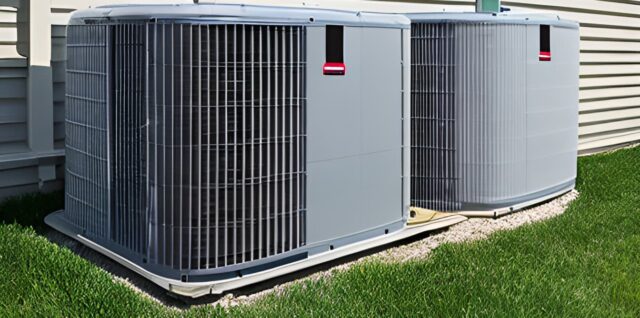In the pursuit of environmental sustainability, efficient damper actuators in HVAC systems play a significant role. This article delves into their environmental benefits, highlighting brands like Johnson Controls damper actuators and Honeywell damper actuators. Discover how these seemingly modest devices can reduce energy consumption and combat carbon emissions effectively.
Understanding Damper Actuators
Damper actuators are the unsung heroes of HVAC systems, responsible for regulating airflow and maintaining the optimal distribution of conditioned air within a building. They come in various types, including electric, pneumatic, and spring-return actuators, each designed for specific applications. While their function may seem straightforward, their role in achieving energy efficiency and indoor comfort is pivotal.
These devices can precisely control the position of dampers within the HVAC system, allowing for the fine-tuning of airflow. By modulating the flow of air, they ensure that spaces receive just the right amount of conditioned air, preventing both under-ventilation and over-ventilation. The result? Improved indoor air quality, reduced energy consumption, and a lower carbon footprint.
The Environmental Impact of Inefficient HVAC Systems
HVAC systems are notorious energy hogs, devouring nearly 50% of a building’s total energy consumption, according to data from the U.S. Department of Energy. Inefficient HVAC systems exacerbate this issue, translating into higher utility bills and amplified carbon emissions. The environmental implications are profound, as they pose significant hurdles to our sustainability endeavors.
Inefficient systems suffer from a host of problems, including suboptimal temperature regulation, uneven airflow distribution, and a propensity to operate at full capacity even during periods of reduced occupancy. These issues result in wasted energy and increased greenhouse gas emissions, directly impacting both the environment and building owners’ bottom lines.
How Efficient Damper Actuators Make a Difference
Efficient damper actuators, such as those offered by industry leaders like Johnson Controls and Honeywell damper actuators, stand as champions in the battle against energy wastage. Equipped with state-of-the-art technology, these devices are the linchpin of energy optimization within HVAC systems. Variable speed control is a standout feature of efficient damper actuators. Unlike traditional actuators that operate at fixed speeds, these advanced counterparts can adjust their speed dynamically. This means that as building conditions change, so too can the rate at which conditioned air is delivered. When spaces are unoccupied or require less heating or cooling, efficient actuators can slow down, conserving energy. Conversely, when demand increases, they can ramp up to meet it, ensuring consistent comfort.
Automation is another critical feature. Efficient damper actuators can be integrated into building automation systems, allowing for real-time monitoring and control. This capability enables predictive actions, such as preemptively adjusting airflow based on occupancy patterns and outdoor weather conditions. The result is optimal energy usage and enhanced occupant comfort. Consider a bustling commercial building during work hours, bustling with activity. Efficient damper actuators ensure that each area receives the right amount of conditioned air, eliminating hot or cold spots and unnecessary energy expenditure. Conversely, during evenings and weekends when occupancy dwindles, these actuators automatically reduce airflow to unoccupied zones, avoiding wasteful energy consumption.
Environmental Benefits of Using Efficient Damper Actuators
The environmental benefits of efficient damper actuators ripple beyond energy savings. At their core, these devices act as eco-conscious allies, actively contributing to a greener future.
One of the most significant advantages is the reduction in carbon emissions. By diminishing energy consumption, efficient actuators directly contribute to a decrease in greenhouse gas emissions. This aligns with global efforts to combat climate change and create a more sustainable world. Buildings outfitted with energy-efficient HVAC systems, including efficient damper actuators, are better positioned to meet environmental targets and play a role in curbing the effects of global warming.
Moreover, embracing energy-efficient technology often leads to additional environmental certifications, such as LEED (Leadership in Energy and Environmental Design). These certifications not only signal a commitment to sustainability but also open doors to incentives and tax benefits for building owners. This further encourages the adoption of eco-friendly practices in building design and operation.
Additional Advantages and Long-term Sustainability
The advantages of efficient damper actuators extend beyond energy savings and carbon reduction. They encompass enhanced indoor air quality, which, in turn, translates to improved occupant comfort and productivity. By ensuring that occupants breathe clean, fresh air, these devices create a healthier and more pleasant indoor environment.
Another critical facet of the sustainability equation is longevity. Efficient damper actuators are renowned for their durability and reliability. This translates to reduced maintenance costs over time, a key component of long-term sustainability. The need for frequent repairs and replacements is minimized, leading to less waste and a more sustainable approach to building maintenance.
Conclusion
In conclusion, efficient damper actuators are not mere cogs in the wheel of HVAC systems; they are environmental advocates contributing to our sustainability objectives. Through precise airflow control, variable speed adjustments, and integration into building automation, these devices optimize energy usage, reduce carbon emissions, and enhance occupant comfort. Building owners and operators have a responsibility to embrace these innovative technologies, recognizing their potential to foster a greener and more sustainable future.
As we strive for sustainability, let us remember that even seemingly small components, like efficient damper actuators, play monumental roles in achieving our environmental aspirations. Every step we take towards energy efficiency and carbon reduction brings us closer to a more sustainable world.
